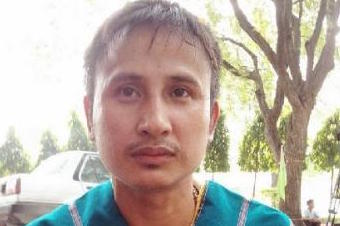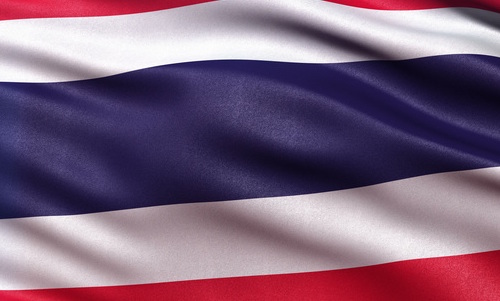
Thailand: launch special investigation into enforced disappearance of “Billy”
Thailand’s Department of Special Investigations (DSI) should launch a special investigation into the apparent enforced disappearance of Karen activist, “Billy,” the ICJ and the Justice for Peace Foundation (JPF) said today.
Today, Billy’s wife, Phinnapha Phrueksaphan, delivered a letter to the DSI requesting it to assume jurisdiction over the case after the police investigation has presented little progress since Billy was last seen in the custody of Kaeng Krachan Park officials on 17 April 2014.
“This is precisely the kind of case the DSI was created to investigate,” said Kingsley Abbott, International Legal Adviser at the ICJ.
“The investigation is complex, the suspects include influential administrative officials and if Billy was forcibly disappeared then an extremely serious crime under international law has been committed. The police investigation does not appear to have advanced significantly in more than a year and so now it’s long past time for the DSI to take over,” he added.
Phinnapha Phrueksaphan also asked the DSI for Pol. Col. Traiwit to be part of any DSI investigation team due to the commitment she thinks he has demonstrated to the investigation so far and to disclose the results of the DNA testing of the blood allegedly found in a Park Official’s vehicle (in which Billy was last seen).
She was supported by Angkhana Neelapaijit, the head of JPF, whose own husband, Somchai Neelapaijit, was the victim of enforced disappearance in 2004 and whose case the DSI is still investigating.
“Thailand must act on its repeated commitments to combating enforced disappearance by handing this case over to the DSI. There are strong parallels between Billy’s case and the case of my husband and there is no reason why the DSI should be investigating one and not the other,” said Angkhana Neelapaijit.
The DSI was created by The Special Investigation Act B.E. 2547 (2004) and is sometimes referred to as the FBI of Thailand. It has the power to assume jurisdiction over special criminal cases including complex cases that require special inquiry; crimes committed by organized criminal groups; and cases where the suspect is an influential person or an administrative official.
Background
Since Billy “disappeared” his wife has been raising their five children on her own.
Thailand, pursuant to its international legal obligations, including as a party to the International Covenant on Civil and Political Rights, is required to promptly, independently and effectively investigate and, where appropriate, prosecute, punish and provide a remedy and reparation for the crime of enforced disappearance.
The Royal Thai Government has signaled its recognition of the gravity of the crime of enforced disappearance and its commitment to combating it by signing (but not yet ratifying) the International Convention for the Protection of All Persons from Enforced Disappearance on 9 January 2012. The Convention affirms the absolute right not to be subject to enforced disappearance and places an obligation on states to make it a criminal offence punishable by appropriate penalties that take into account its “extreme seriousness.”
The Thai Cabinet is currently considering a draft law that would make enforced disappearance and torture stand-alone crimes in Thailand.
Since July 2014, the ICJ has repeatedly called for the DSI to assume jurisdiction over the case.
For more information see:
https://www.icj.org/thailand-disappearance-of-billy-demands-special-investigation/
https://www.icj.org/thai-authorities-must-urgently-investigate-billys-disappearance/
Contact
Kingsley Abbott, ICJ International Legal Adviser, email: kingsley.abbott(a)icj.org or mobile: +66 94 4701345
Angkhana Neelapaijit, Justice for Peace Foundation, email: angkhana.nee(a)gmail.com or mobile: +66 84 7280350
Thailand-Disappearance Billy-News-PR-2015-ENG (full text of the press release)
Thailand-Disappearance Billy-News-PR-2015-THA (full text of the press release in Thai)





